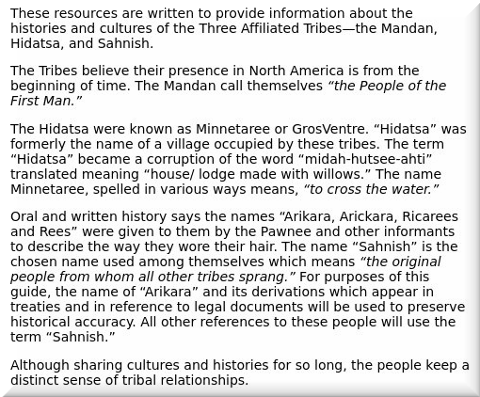

Reference: Three Affiliated Tribes
EARLIER this month we wrote two fairly long articles [1, 2] about the Mohawk people acting as a 'proxy' to suppress inter partes reviews (IPRs) by the US Patent and Trademark Office’s Patent Trial and Appeal Board (PTAB). This is no laughing matter. Some nefarious entities that are registered in truly dodgy places are trying to create a loophole against justice itself. It makes Natives look bad; the Mohawk tribe, for example, is now known (to many) for nothing more than a patent "scam" (see this new article from the Financial Times entitled "Allergan deal with Mohawk tribe casts patent shadow").
Apple gets sued for patent infringement dozens of times each year, mostly by little-known shell companies with no products—the types of companies often derided as "patent trolls." But the newest lawsuit seeking royalty payments from iPad sales is likely a first: the recently created plaintiff, MEC Resources LLC, is wholly owned by a Native American tribe. The MEC lawsuit appears to be using Native American legal rights to avoid having the US Patent Office perform an "inter partes review" that could invalidate the patent.
The case had a typical beginning. In March, a Texas company named Prowire LLC filed a lawsuit (PDF) against Apple in Delaware federal court, claiming that the iPad 4 infringes its US Patent No. 6,137,390.
If Allergan ultimately prevails in insulating its patents from inter partes review, companies with valuable patents will want to consider implementing similar strategies. Protecting valuable patents from the unfavorable standards and presumptions in inter partes reviews may provide significant benefits to patent holders and their shareholders. As a Native American tribe's sovereign immunity can be limited by Congress through legislation, patent owners will want to assess the possibility of congressional action should Allergan succeed.
What is Allergan afraid of?
[...]
Dismantling the PTAB would be highly dangerous to society’s well-being and the ability to curb abuse by corporations. An unmerited patent on a life-saving drug, for example, can prevent generic competition for decades—keeping prices astronomical and preventing patients from getting treatment. And having a patent does not automatically make you an innovator— on the contrary, bad patents stifle American invention by preventing entrepreneurs and scientists from using existing knowledge to work on the new, fresh ideas that fuel our economy.